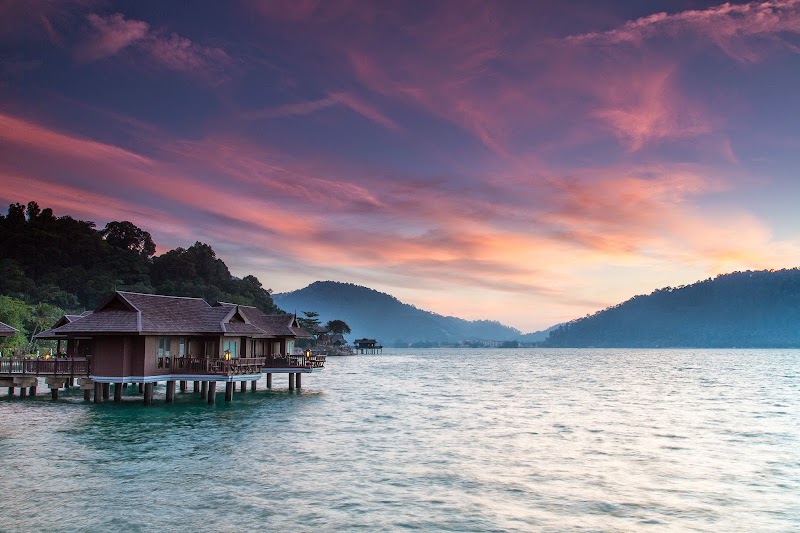
Experience the dynamic spirit of Perak’s heritage at the Pangkor Island Cultural Festival, a lively celebration of tradition set against the island’s sunlit shores. From traditional performances to hands-on craft workshops, this festival offers an authentic slice of island life with practical travel tips to make your visit smooth and enriching.
Stay Hydrated in Tropical Heat
Bring a refillable water bottle and drink regularly—festival venues and island trails often lack convenient water stops.
Wear Comfortable, Durable Shoes
Footwear with good grip is recommended for walking on mixed terrain around the festival sites and island trails to avoid slips on uneven paths.
Plan Your Visit on Weekdays
Arriving midweek means fewer crowds, making it easier to enjoy performances and workshops without rushing or long lines.
Bring Lightweight Rain Protection
Afternoon showers are common—carry a compact rain jacket or poncho to stay comfortable during sudden tropical downpours.
Pangkor Island Cultural Festival: A Vibrant Pulse of Perak’s Island Heritage
Every year, Pangkor Island awakens with a distinct energy as the Cultural Festival breathes life into the island’s rich traditions. Located off the coast of Perak, this multi-day event offers more than just performances — it’s a tactile experience of local history, cuisine, and community spirit. The festival’s setting is practical and inviting: open-air venues scattered across the island’s village squares, beaches, and cultural sites, allowing easy access by foot or bike.
Festival-goers come to witness traditional dances twirling in colorful costumes that catch the tropical breeze, while the rhythmic drumbeats challenge the steady pace of the ocean tides. But this isn’t a passive spectacle. Workshops invite attendees to try their hand at batik painting or keris-making, empowering visitors to connect directly with centuries-old crafts.
Navigating the festival is straightforward: layout maps available at the main jetty and information centers guide you between stages and food stalls, where the aroma of fresh ikan bakar (grilled fish) and spicy laksa draws you in. The festival runs daily from mid-afternoon through early evening, a timing that pairs perfectly with sunset viewing by the beach. Daylight hours are ideal for exploring the historic Dutch Fort nearby or hiking the small trails that snake through the island’s interior—each trek rewarding you with glimpses of the South China Sea daring you to linger just a moment longer.
Travelers will find the crowds manageable if they arrive on weekdays or early in the festival, with weekends gathering a more festive buzz. For those planning the trip, stay hydrated under the tropical sun and wear sturdy shoes for uneven paths, especially if you want to explore beyond festival grounds. Bicycles and motorbikes are available for rent; however, the compactness of Pangkor Island favors exploring on foot, letting you absorb the ambient sounds and spontaneous performances.
In blending cultural immersion with accessible adventure, the Pangkor Island Cultural Festival is a gateway into a fiercely vibrant local culture. It invites respect for its traditions and appreciation for the island’s natural features—from the forests pushing forward against the shoreline to the currents sculpting its beaches. This is a festival where excitement and reflection meet, promising practicality without sacrificing the thrill of discovery.
Nearby Trips
All Adventures
Boat Charters
Water Activities
Adventures near Pangkor Island, Perak
Discover the unique and memorable adventures that make Pangkor Island, Perak special.
Frequently Asked Questions
When is the Pangkor Island Cultural Festival held?
The festival typically runs annually between June and August, timed to coincide with the dry season and school holidays, maximizing visitor attendance.
Are the festival workshops suitable for beginners?
Yes, workshops such as batik painting and keris-making welcome all skill levels, providing step-by-step guidance to ensure a hands-on, educational experience.
What is the best way to get around the festival and Pangkor Island?
Walking is the preferred method due to the island’s compact size. Alternatively, bicycles and motorbikes can be rented for longer distances, but traffic can be narrow and busy near popular spots.
Is Pangkor Island safe for solo travelers during the festival?
The island is generally safe with a friendly local community, but standard precautions apply—stay in well-populated areas after dark and secure your belongings.
Are there lesser-known viewpoints on the island worth exploring during the festival?
Yes, the Jemur Island viewpoint offers quiet panoramas of surrounding islets, and the trails near Teluk Nipah beach reveal secluded beaches away from festival crowds.
What local wildlife might I encounter at the festival or nearby trails?
Besides occasional long-tailed macaques, visitors may see colorful dragonflies, monitor lizards basking in the sun, and seabirds like brahminy kites soaring above the coastline.
Recommended Gear
Lightweight Walking Shoes
Provides support and traction for uneven paths, sandy beaches, and festival grounds.
Reusable Water Bottle
Keeps you hydrated in the tropical climate and reduces plastic waste on the island.
Compact Rain Jacket
Protects against sudden rain showers common during tropical afternoons.
Sun Hat and Sunscreen
Shields against intense equatorial sun, reducing risk of dehydration and sunburn.
Local Insights
Hidden Gems
- "Teluk Nipah’s hidden caves edged by limestone cliffs"
- "The quiet fishing village of Sungai Pinang Kecil away from tourist hubs"
Wildlife
- "Long-tailed macaques frequent shady forest edges"
- "Brahminy kites and sea eagles patrol coastal skies"
History
"Pangkor Island carries a layered history: from Acehnese and Dutch colonial impacts to a long-standing fishing culture preserved in village life and reflected in festival traditions."
